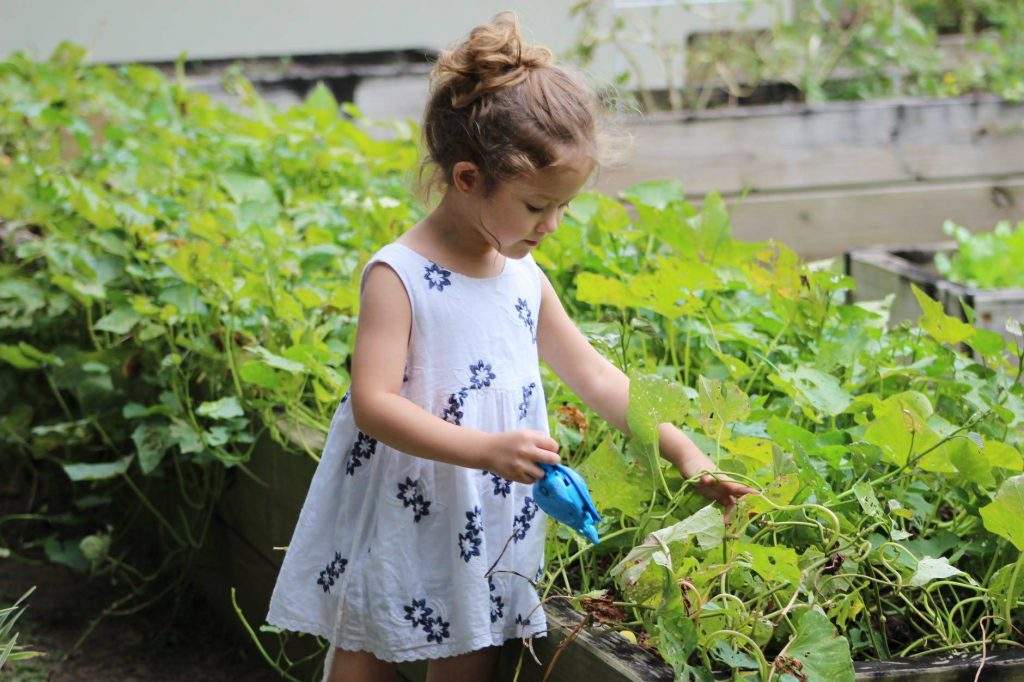
Gardening in your backyard is a great way to relax but it’s also a way to put quality, organic food on your table. The problem with this type of gardening lies in the fact that you have a limited amount of space, which is why you need to aim for efficiency. This means adopting all the best gardening practices and learning how to maximize your yields. Most importantly, you’re trying to ensure that your harvest is plentiful, healthy, and organic. Here are seven tips you should pick up in order to ensure that this is the case.
1. Raised garden beds
Raised garden beds are ideal for small gardens, seeing as how they protect the area from foot traffic, give you a better overview of the situation and keep the temperature of the soil higher. Making raised garden beds is not difficult, also, it’s something that you do once. They can be used for vegetables, flowers or herbs, which makes them versatile and usable in all conditions. Moreover, they’re perfect for small plots of herbs and vegetables, which is the likely volume that you’re going to grow in your garden. Garden beds also give some protection from slugs and snails.
2. DIY composting
Another thing you need to keep in mind is the importance of DIY composting. This will determine the quality of nutrients in your soil. The thing is that you can also make compost to get rid of some leftovers. Virtually, everything organic that’s no meat or dairy can be turned into compost. You can even use things like eggshells, straws, etc. This means that you get to de-clutter your home and help your gardening efforts at the same time. So, try to learn more about composting.
3. Benefits of mulching
Another great thing you can do for your garden is to cover the garden beds with mulch. This provides so much benefit to your plants. First, it protects the soil from direct sun radiation. Second, it maintains an internal temperature. With elevated garden beds, this can really make a world of difference. Third, this additional protective layer will also provide some pest protection. The thing is that you can chip any untreated wood in order to get mulch. Treated wood is not such a great idea because it is filled with toxins that may get released into the soil.
4. DIY irrigation system
Providing your garden with enough moisture is definitely a top priority. Sometimes, this will require you to install an irrigation system. Now, irrigation systems come in all shapes and sizes. According to experts behind Hoselink USA, it’s best to invest in a system that can easily be dismantled. This way, you’re protecting your irrigation over the course of the year, especially during those periods when it’s not in regular use (over the course of winter).
5. Pest protection
Protecting your garden from pests is a complex matter. First, you should protect it from larger pests by erecting a fence and pruning surrounding trees, so that climbing and hopping pests don’t get a suitable platform. Other than this, there are a lot of recipes for home-made pest repellants that are completely organic and safe to use. This requires ingredients like chopped tomato leaves, liquid soap, molasses, and apple cider. As you can see, nothing that could potentially put you or your family in harm’s way. Moreover, this method is quite frugal, even if it is a bit more labor-intensive.
6. Companion planting
Another way to help your plants thrive and keep them pest safe is to study the notion of companion planting. What is companion planting? First of all, companion planting is a concept where two plants are planted in proximity so that their traits can benefit each other. It is virtually a form of a forced symbiosis. For instance, tomatoes and basil, as well as pepper and basil are made to go together.
This is due to the fact that basil repels aphids and spider mites, which are natural enemies of tomatoes. There are numerous such examples and instances for you to explore and exploit. You can download a massive chart to help you plan the layout of your backyard garden more efficiently.
7. Go for local plants
Your own local climate is the key in making your gardening efforts as simple as possible. First of all, local plants are accustomed to local climate, local soil nutrient values and weather occurrences. This means that with locally-grown herbs and vegetables, you won’t have to go that far in terms of soil enrichment and irrigation.
It means that the average number of rainy days might satisfy the majority of needs for your plants. As such, it also means that you won’t really have that much work. Moreover, some herbs and vegetables require too much work or can never thrive in local circumstances. Learn how to recognize them.
In conclusion
With these seven tips on your side, you will get a chance to master the art of gardening in your backyard. The best part is that it allows you to do it all on your own, without relying on expensive equipment, ingredients, or complex processes. The thing is that you can make your own irrigation system, your own compost, and your own mulch. By making DIY pesticides and companion planting, you will keep your garden safe and pest free without polluting it or spending a small fortune in doing so. Overall, where there’s a will, there’s always the way.